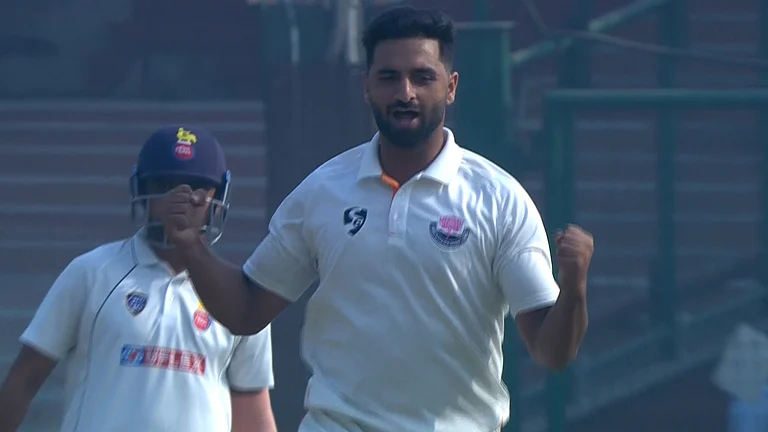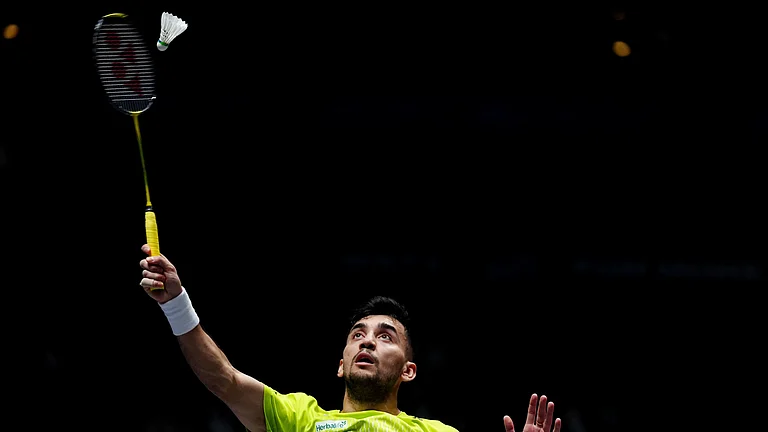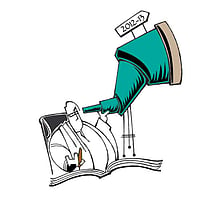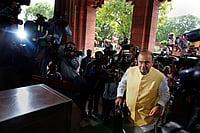There is something about media companies that attracts scamsters, realtors, politicians and funny money. Three factors are key. One, large sections of the media are plain-and-simple unviable, given low subscription prices and tough markets for advertising revenue. But, a second factor almost neutralises this disadvantage: ownership of the media buys you influence and access to political power. According to one estimate, more than a third of media companies, including TV channels and cable companies, are owned by politicians. Three, weak finances make it easy for funny money—from real estate and businesses with large, illegal cash incomes—to use media companies as the ultimate laundromat for whitening black money. And vice-versa. Some media owners, especially in regional media, even get to masquerade as backers of “investigative” journalism—thinly-disguised threats to use “exposes” to blackmail businesses and politicians into advertising in your media vehicle.
If you knew all this, you would have had no problems understanding why a media company, INX Media, owned previously by Peter and Indrani Mukerjea, now in jail as co-accused in the murder of their daughter Sheena Bora, is at the centre of the dubious business dealings of Karti Chidambaram, son of Palaniappan Chidambaram, former finance minister. The CBI arrested Chidambaram Jr on March 1 as soon as he landed in Chennai airport, for allegedly accepting bribes in exchange for helping INX Media legitimise an effort to bring in Rs 305 crore from three Mauritius-based companies. Apparently, the initial Foreign Investment Promotion Board (FIPB) approval was for only Rs 4.62 crore of investment in 2007. The arrival of Rs 305 crore into INX Media’s books was flagged by the Financial Intelligence Unit, which triggered further investigations by the Income Tax department and the Enforcement Directorate (ED). The CBI alleges that Karti received money from INX to help resolve these cases “amicably”, presumably by influencing members of the FIPB, which was presided over by the finance minister himself.
While we need not, at this stage, delve too much into the question of whether INX Media paid a bribe or not (that must be proved in court), what is important to underline is the close nexus between funny money and the media, with politicians and middlemen getting into the act one way or the other.
INX is not an isolated case involving a nexus between dubious money and dubious business interests. A few years ago, the Saradha Group in West Bengal set up many TV channels and published newspapers in Hindi and Bengali based on incomes from a chit fund business. When that was discovered to be a ponzi scheme, the media outfits financed by it went belly-up. It is interesting to note that journalists, who often bring in a healthy dose of scepticism when inquiring into such companies, did not retain their scepticism when given plum job offers by businessmen who were not even remotely involved with the media.
The Sahara Group, whose chairman Subrata Roy has spent nearly two years in Tihar jail for refusing to honour a Supreme Court verdict of 2012 that ordered him to repay Rs 24,000 crore to depositors in two illegal money-raising schemes, is another case in point. Even as the court-mandated payments have swelled further with the addition of interest costs since 2012, the very fact that the group is unable (or unwilling) to raise bail money for its owner suggests that the money may not belong to him. Sahara obviously used its money-raising schemes to fund media operations, which shut down in 2015 when the boss was cooling his heels in jail.
The Sahara case shows you don’t have to be a crooked media company to receive crooked money. Today, even when its boss remains in the twilight zone between jail and bail, the group continues to pay large sums to media companies for its advertisements. The media clearly has no qualms about receiving money from a jailbird.
Deccan Chronicle Holdings Ltd (DCHL), run by brothers T. Venkattram Reddy and T. Vinayak Ravi Reddy, is now into bankruptcy proceedings for not just loan defaults, but also possible fraud that would have offered some competition to diamantaire Nirav Modi in the Punjab National Bank scam. Some of DCHL’s loans were apparently taken using fake documents. Between 2004 and 2012, the two Congress-leaning publishers raised over a hundred loans totalling Rs 10,000 crore. In March 2017, the ED seized assets worth Rs 263 crore under the provisions of the Prevention of Money Laundering Act (PMLA)—which is the law under which the CBI is going after Karti Chidambaram, too.
The lure of funny money has not spared even blue-blooded media companies like NDTV. In 2007, the Roys of NDTV—Prannoy and Radhika—decided to buy back 7.7 percent of the company’s stake from one GA Holdings at Rs 439 a share, when the market price was much lower. This triggered an open offer, which forced the Roys to borrow Rs 501 crore from Indiabulls Financial Services in July 2008—a seriously ill-timed move when the Lehman Brothers-triggered global financial crisis was just two months away. To repay Indiabulls, the Roys raised Rs 375 crore from ICICI Bank, and when the bank too found this sum too hot to handle, another saviour was found in Vishvapradhan Commercial Pvt Ltd, which, in turn, had raised money from Reliance Industries’ subsidiaries. Reliance has since exited NDTV, but some old associates continue to stay invested in it.
Without commenting on the legitimacy of the funds flowing into NDTV from various sources, the point to note is that someone or the other is always willing to put in money, big money. And this when it was very clear that NDTV was far from financially healthy. According to S. Gurumurthy, who has gone after Karti Chidambaram’s “benami” properties with a vengeance, NDTV was reporting cash losses of Rs 248 crore in 2004, but between 2006 and 2010, it had managed to create some 20 subsidiary companies in India, Mauritius, Netherlands, UK and Sweden, which raised millions of dollars for the company.
If one goes down to the level of various states, one is likely to find very strong linkages between media businesses and politicians in power. When Y.S. Rajasekhara Reddy was chief minister of undivided Andhra Pradesh, his son Jagan Mohan Reddy started a media empire with practically no investment of his own. When the CBI raided him after he fell out with the Congress party under Sonia Gandhi, it was discovered that over a dozen companies had invested over Rs 800 crore in his media company, which runs Sakshi TV, even before it had started operations. Closeness to one political party, though, has its costs. Sakshi’s rival, Eenadu, fell from grace and faced financial issues when YSR was in power.
In Tamil Nadu, the Sun TV group is closely aligned with the DMK and Jaya TV with AIADMK, and during the UPA regime, Sun TV used its power at the Centre to illegally obtain an entire telephone exchange from BSNL for its operations. In Maharashtra, the Sakal group is linked to Sharad Pawar, while another Congress politician owns Lokmat. Look at any state, and you may find many media houses directly or indirectly owned by politicians or businessmen linked to the ruling or opposition parties.
The linkages between the media, crookery, illegal businesses and politicians run wide and deep. Power and influence are the common factors enabling this incestuous relationship. Only journalists seem wholly innocent of this reality. What one does not wish to see, one won’t see.
(The author is editorial director, Swarajya magazine)





















